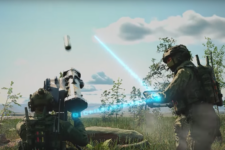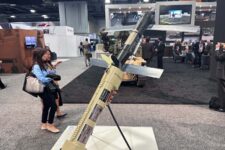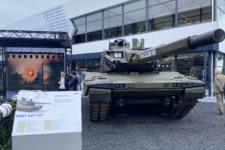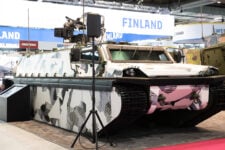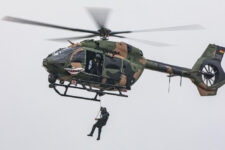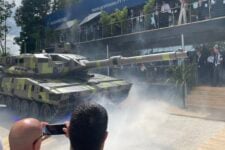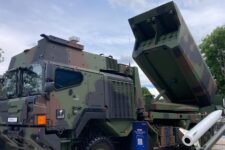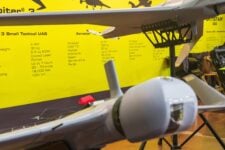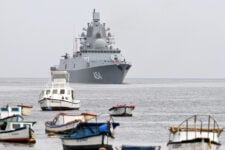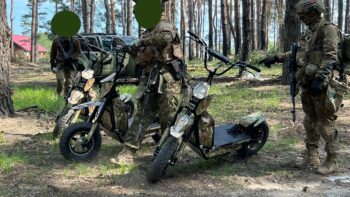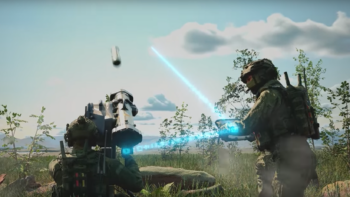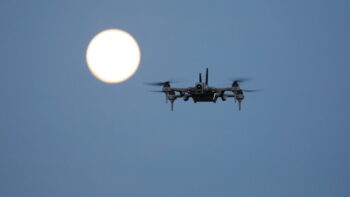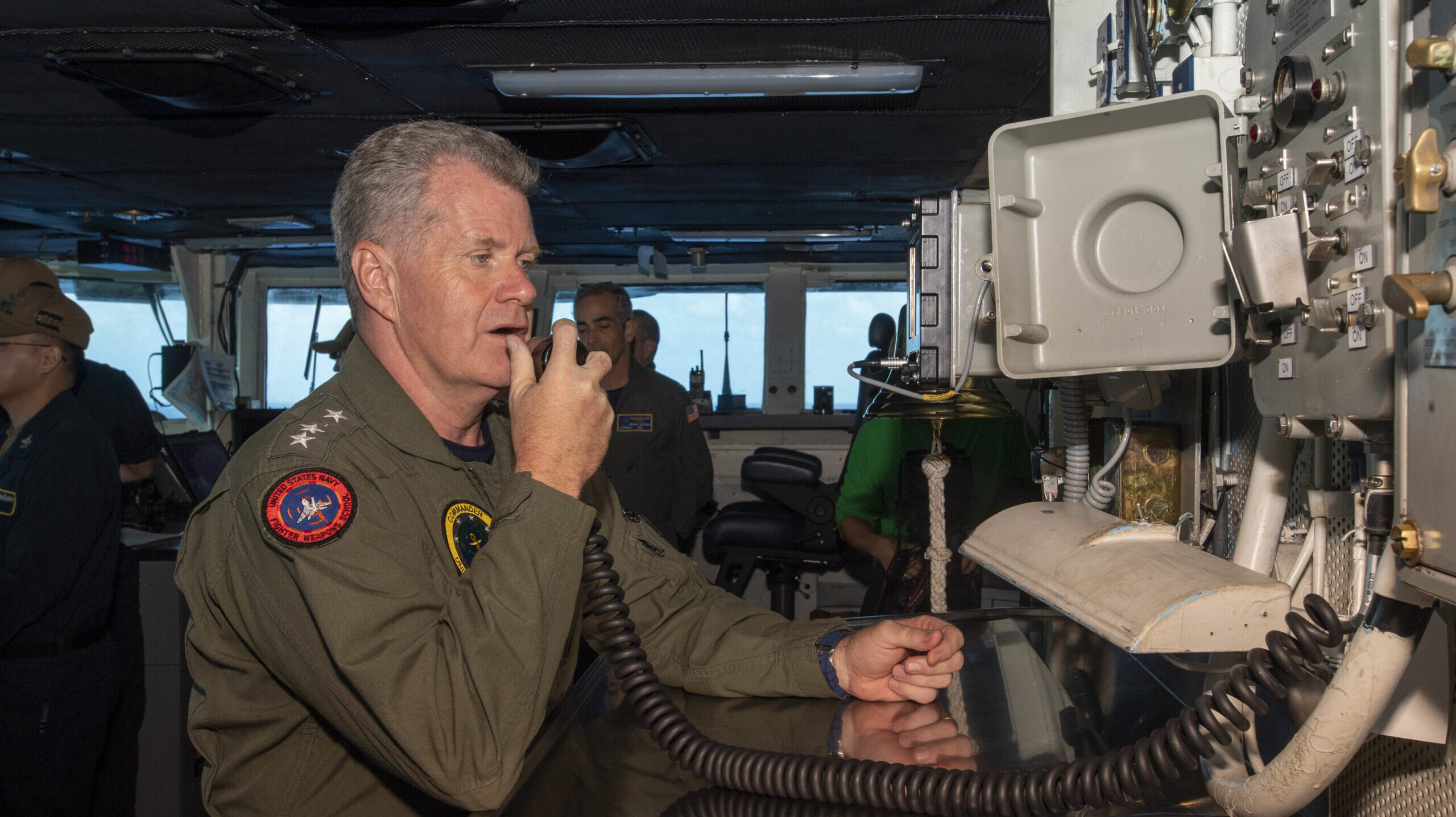
Adm. Samuel Paparo, commander, U.S. Pacific Fleet, speaks to the crew of the aircraft carrier USS Nimitz (CVN 68) over the ship’s public address system. (U.S. Navy photo by Mass Communication Specialist 2nd Class Samuel Osborn)
WASHINGTON — China has closely watched the nearly two years of war in Russia’s invasion of Ukraine, but rather than concluding a similar course of action in Taiwan would be in vain, Beijing has discerned that toppling the leadership in Taipei must be done swiftly to present a “fait accompli” to the world, according to President Joe Biden’s nominee to head up Indo-Pacific Command (INDOPACOM).
Speaking during a Senate Armed Services Committee confirmation hearing today, Adm. Samuel Paparo, who currently commands the US Pacific Fleet, reiterated longstanding Pentagon concerns about the so-called “pacing challenge” posed by China and the looming threat that the country may invade its island neighbor of Taiwan. During the hearing, Paparo stressed that the Taiwan Relations Act requires the Defense Department to respond if China took such a step, warning that the prolonged conflict in Ukraine is not deterring Beijing from seizing Taipei by force.
“Instead of seeing the Ukraine conflict and deciding ‘this is too hard,’ their intention, on the other hand, is to take note of the actions of Russia in order to effect a short, sharp, fait accompli conflict,” Paparo said. “So rather than take the strategic lesson of the futility of aggression, instead [China] is doubling down on their ability to shrink strategic, operational and tactical warning and act quickly.”
A key deterrent of Chinese aggression in the western Pacific, Paparo said, is continued support of Ukraine and thwarting Russia’s invasion. To that end, committee Chairman Sen. Jack Reed, D-R.I., asked whether passing a stalled supplemental aid package that includes funds for Ukraine and furnishes further shipbuilding investments would be the “most decisive” thing that Congress could presently do, to which Paparo agreed.
Paparo, who was warmly received by senators on both sides of the aisle, said that despite China’s rapid naval buildup, the US Navy is not “overmatched.” Still, the admiral said he “[doesn’t] like the pace of the trajectory,” additionally identifying some weaknesses such as calling out a “vulnerability” posed by the size of the current US Merchant Marine fleet.
RELATED: ‘Important step’: US, China resume military-to-military policy talks after comms freeze
To combat the threat posed by China, Paparo said a key capability is “persistent stare” intelligence, surveillance and reconnaissance (ISR), noting that behind homeland defense, countering China’s own ISR capabilities is his “number one priority.”
Taiwan has made strides to equip itself for defense and has also studied lessons from Ukraine, Paparo said, though he emphasized he would continue to urge Taipei to build up its military prowess.
China, Paparo acknowledged, expects to have the ability to invade Taiwan by 2027, a year the admiral stated is mostly related to the 100th anniversary of the People’s Liberation Army. Pentagon officials have often stressed an invasion is neither imminent nor inevitable and wargames have shown such an attempt would be extremely costly, though Paparo emphasized it could still happen at any time.
“In fact, I think they’re working to be ready every day and they could go and we’ve got to be constantly vigilant,” he continued. “There’s no holiday between now and when they may go. And we must be ready now next week, next month and in the decades to come.”

